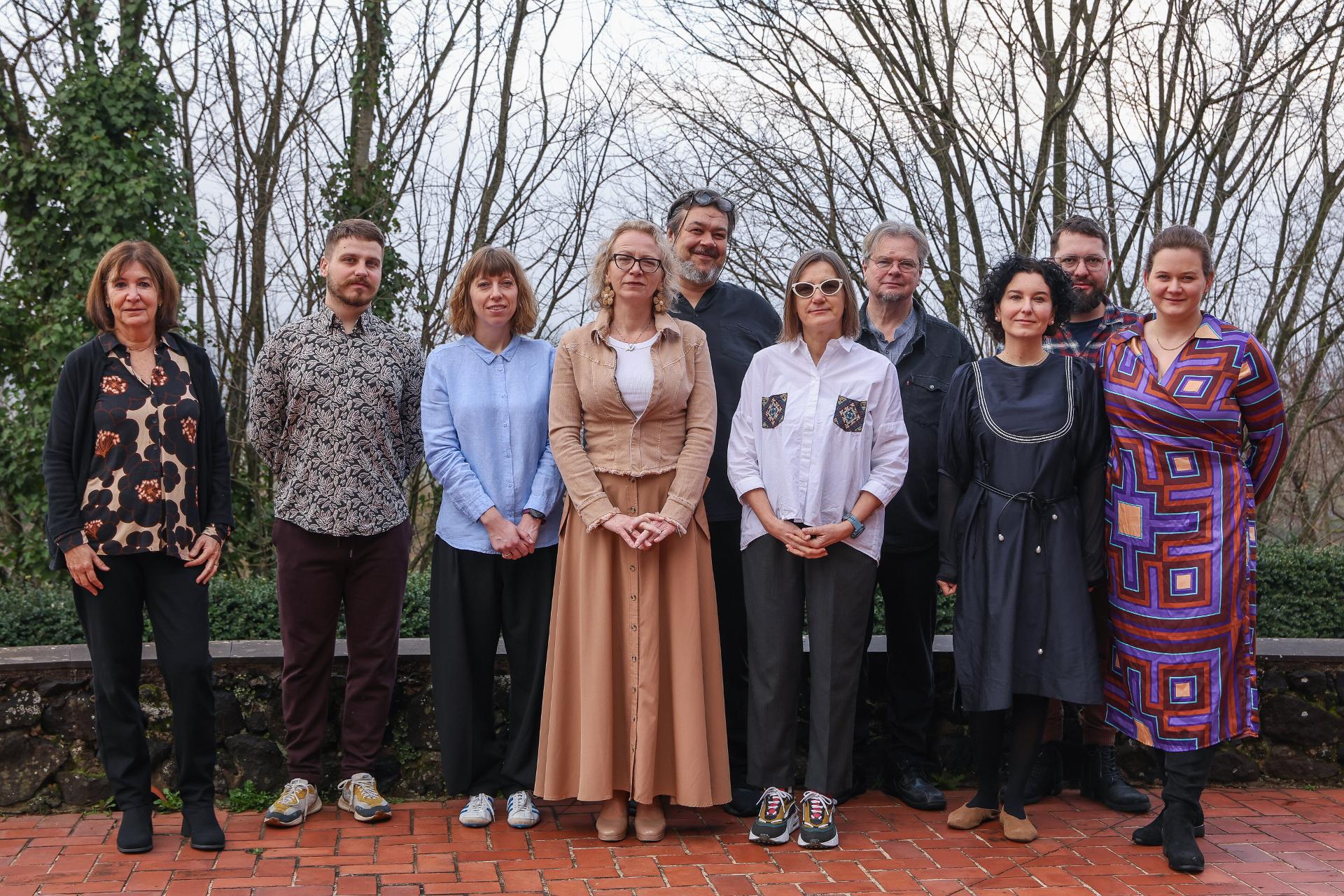Faberllull connects activists from different linguistic minorities in Poland, Kabylia, Catalonia, and Aran to explore the processes that hinder the use of minoritised languages among young people, as well as young people’s attitudes and positions towards language.
Until 10 March, activists gathering in Olot include those defending Vilamovian (Tymoteusz Król and Justyna Majerska-Sznajder), Kashubian (Artur Jabłoński and Anna Kościukiewicz-Jabłońska), Lemko (Natalia Małecka-Nowak), Dzūkian (Jowita Niewulis-Grablunas and Piotr Grablunas), Silesian (Bartłůmjej Wanot), Amazigh (Salem Zenia and Kaissa Ould Braham), Nahuatl (Justyna Olko), Sardinian (Katjuscia Mattu), Aranese (Alidé Sans), and Catalan (Mònica Pereña, Emili Boix and Josep Cru).
The residence, jointly organised by Faberllull and Linguapax, is part of a project analysing changes in young people's linguistic practices, stemming from the collaboration between Linguapax and the Centre for Research and Cultural Practice at the University of Warsaw. From perspectives and contexts as diverse as Catalan and Polish, participants share diagnoses and existing strategies in each country and propose elements that could help reverse these trends and be useful to other communities worldwide.
Currently, very significant changes are being observed in the use of minoritised languages, especially among young people globally. Even when the learning of these languages is guaranteed through education systems, social usage is increasingly shifting towards hegemonic languages. Historically, family languages have been transmitted from generation to generation, ensuring their survival, particularly in monolingual territories. However, factors such as colonisation, large-scale economic migration, and the explosion of technology have transformed the linguistic landscape of cities and the dynamics of language use within families. Factors such as the utility of the majority language or the identity associated with the community's language have influenced choices regarding family languages, often to the detriment of heritage languages. Delving into these dynamics is essential to reversing the trend of disappearing non-hegemonic languages.
Two activities in the city of Olot
The participants of the residency "The Transmission and Use of Minority Languages: A Generational Crisis?" will take part in a podcast recording by Ràdio 90 on minoritised languages this Thursday at 3 p.m. at Cafè Art Fontanella XII. The event, open to everyone, will feature the Aranese singer Alidé Sans, the Olot poet Rosa Vilanova, and other activists for Catalan, Aranese, Amazigh, Sardinian, Silesian, Kashubian, Vilamovian, Lemko, and Dzūkian. They will discuss the experiences of those striving to keep their languages and cultures alive, with poetry readings in some of these languages and a performance by Alidé Sans.
On Friday morning, the residents will visit the Catalan Language Service in Olot, where they will learn about various projects aimed at promoting the use of Catalan, such as the language partnership programme and the initiative encouraging businesses to be linguistically responsible.







